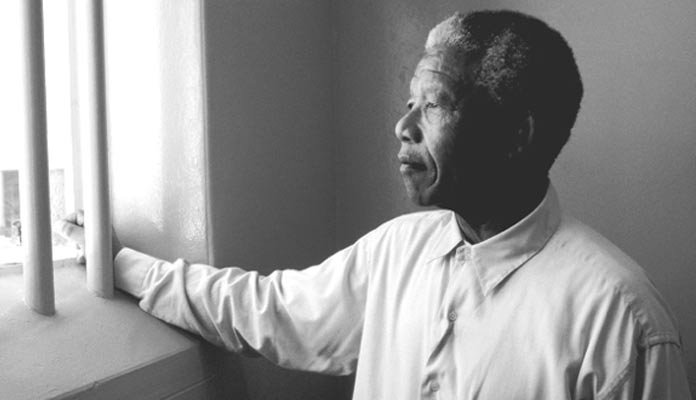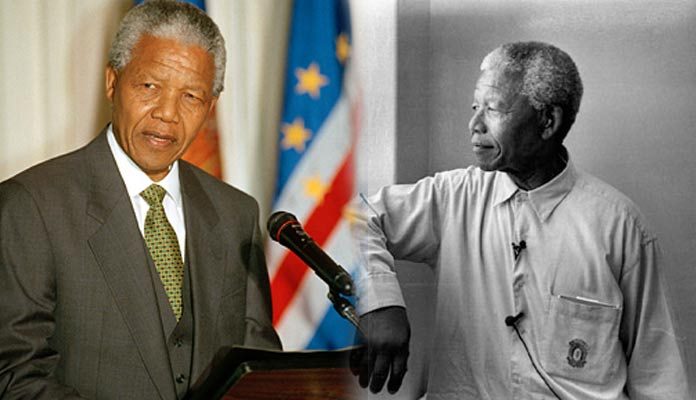The Mandela history is that of a hero for millions in South Africa and across the world. Mandela history is a colorful reminder of the struggles of millions all over the world fighting discrimination. The Long Walk to Freedom is an autobiography of the great South African anti-apartheid leader. The Long Walk to Freedom chronicles the journey of Nelson Mandela towards freedom.
The Arrests of Nelson Mandela
The oppressive white regime kept coming with excuses to arrest Nelson Mandela. Typical charges against Nelson Mandela included subversive activities, conspiracy to overthrow the state, and supporting communism. Similar other pretentious changes against Mandela included treason, and holding secret meetings with reporters. The authorities would always come up with excuses to arrest Nelson Mandela and suppress his fight against apartheid, discrimination, and lack of a just South African society.
How Long Was Nelson Mandela in Prison?
 The great leader Nelson Mandela remained in prison for 27 years. An American Diplomat gave the details that CIA was probably behind the arrest of Nelson Mandela. The CIA was fearful of the possible links that Mandela had with the communists.
The great leader Nelson Mandela remained in prison for 27 years. An American Diplomat gave the details that CIA was probably behind the arrest of Nelson Mandela. The CIA was fearful of the possible links that Mandela had with the communists.
Nelson Mandela went to the Johannesburg Marshall Square prison. The authorities gave me the punishment for his alleged visit out of the country without a visa. The authorities also charged him with the incitement of workers for going on strike.
Nelson Mandela’s longest stay was at the prison on Robben Island. He remained in that prison for over 18 years. He spent his time in a small damp cell measuring just 8 feet by 7 feet. The white prison guards would verbally and physically harass Mr. Nelson Mandela during his stay at the jail.
Nelson Mandela, during his time in the prison, would study for his LLB he was pursuing from the University of London. The guards would not allow him to read the newspaper and he was punished if found having any news clippings. He did lead many hunger strikes to improve the living conditions in prison but was not able to succeed. He kept on struggling till he was able to get his prize of freedom in 1994. During the Nelson Mandela speech, he criticized the South African media at that time. In the Nelson Mandela speech, he also criticized middle-class media owner whites for focusing too much on crimes.
How Nelson Mandela Got Freed?
The negotiations between Nelson Mandela and authorities took place many times. However, the talks with authorities became successful in 1992. Mandela became the President of South Africa in 1994 and remained in power till 1999. Among his many unusual steps, he supported freedom of the press without censorship, befriending journalists, and criticizing the country’s media.
How Did Nelson Mandela Die?
Mandela got admitted to the hospital in Feb 2011. He had a respiratory infection which got cured after some time. Mandela got readmitted to the hospital in December 2012 and subsequently in June 2013. However, his struggle with the disease meant that he would die on 5th December 2015.
Mandela history has a lot of lessons for the humanity. People will remember him for his services towards his nation and against the slavery. There are six Nelson Mandela children out of his three marriages. Nelson Mandela children include seventeen grandchildren and around seventeen great-grandchildren.
Why People Still Remember Nelson Mandela?
The end of apartheid is one of the greatest contributions of Nelson Mandela. Similarly, before he came into power, the entire country of South Africa was in disarray. He helped overcome many difficulties faced by the country.
He worked on improving the economy to ensure redistribution of the economic wealth to decrease rich-poor income disparity gap. Recognizing weapons manufacturing as South Africa’s main strength, he brought the sector under strict regulations.
He also worked on promoting tourism industry of the country. The introduction of market economics helped South Africa attract foreign investment. Similarly, the introduction of free health care for children under age 6, ensuring more children could go to schools, and connecting more people to the electric grid were significant achievements.


